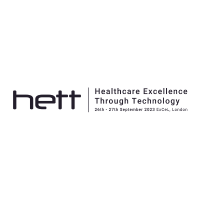Written by: SmartCo
Digital transformation is a misnomer. What we’re actually talking about is healthcare transformation enabled by digital technology. It requires determination from those delivering and sponsorship from those on the board.
If we elevate the digital element of transformation, then change becomes the provenance of the digital team and lets everyone else off the hook. It increases the risk that the change does become digitally led, with clinical services being shoehorned into systems that don’t meet their needs, hopes and goals. The all too familiar consequence is that digital systems are not well adopted and promised benefits not realised.
A large-scale transformation needs not only board level buy-in, but board level ownership and leadership if real impact is to be achieved. But how do you engage a board that is facing multiple calls on its attention and which might feel out of its depth when it comes to the technology sphere?
Hull University Teaching Hospitals NHS Trust (HUTH) and North Lincolnshire and Goole NHS Foundation Trust (NLAG) have been grappling with this challenge - two acute Trusts coming together to form a group, with promised gains for staff and patients. This clinical transformation will be fuelled by a shared electronic patient record that enables data and pathways to be shared between them.
The CEO, Shauna McMahon and CCIO Dr Alastair Pickering took a bold decision to take a design-led and participatory approach from outline business case development (OBC) onwards. They hoped to engage the board by grounding it in clinical transformation, ensuring the new EPR is orientated around what is most important to staff. With our expertise in people-centred digital transformation, they brought the SmartCo team to help create a compelling people-centred business case.
Our design team began with a framing workshop, whereby we brought a senior group of leaders (including execs and non-execs) together to introduce our people-centred approach and secure a mandate for what was to follow. We created a Theory of Change to create a clear focus, not just the nuts and bolts of an EPR business case, but the change and impact it will enable. The workshop was an opportunity to get the quality improvement team and others involved in the conversation at an early stage.
With an engaged group of senior leaders, our people-centred design team ran user research days in situ within multiple and varied clinical services. Spending time within services, meant we could not only speak with staff about the challenges they face, but observe them in real time. Sometimes people become so habituated to problems, workarounds and low-level irritations that they become part of the everyday. Observation elicits the things that people forget to mention but which may provide the key to a more usable system.
As important as the insights, was the tone that we were able set from the get-go; staff were deeply appreciative of the opportunity to have their say and to see their concerns taken into account from the outset. Clinical sponsorship from Alastair was invaluable to engaging staff.
We wove this engagement into both the outline business case and user requirements for the procurement specification. The categorised and themed insights created the foundations of the benefits realisation case. We found unexpected benefits and we validated and sometimes challenged others. We brought to the OBC to live, telling real-life stories, which brought colour to what can be a grey and transactional process.
Alastair gave us this lovely feedback: “The support we have had from SmartCo has been fantastic. From the outset they have shared their expert knowledge of user-centred design. The team have driven local workshops with our staff at all levels in multiple clinical areas, all of which were very well received and have driven up enthusiasm for how digital, and specifically a modern EPR, can transform how staff work better for our patients.
He went on to say: “The team were enthusiastic and engaging throughout, producing an excellent final report that highlighted a number of key areas for us to deliver on for both quick fixes and medium to longer term solutions.” It is important to note that quick fixes, sorting manageable problems in the here and now is an important part of building trust and momentum with staff.”
We were grateful to have the opportunity to support the HUTH & NLAG team on their healthcare transformation journey, involving staff and securing board level buy-in from the get-go.
Find out more at HETT Show, 26-27th September, ExCeL London
Join us at HETT Show on 26-27th September at ExCeL London to hear more from Victoria Betton, Practice Director - UCD, SmartCo, in the session 'Gaining Board Level Buy-in For Digital Transformation'.
%20(1).png?width=500&height=58&name=HETT%20insights%20logo%20RGB-04%20(1)%20(1).png)


